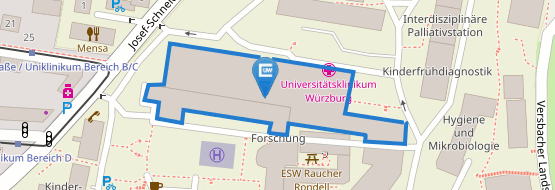Nucleic Acid Binding Proteins
Interactions between proteins and nucleic acids (DNA and RNA) are central to all aspects of maintaining and accessing genetic information. Recognition processes also represent a fundamental aspect of these interactions. Several cellular mechanisms that rely on protein-nucleic acid interactions are studied at the Rudolf Virchow Center using a combination of structural, biophysical and biochemical techniques. They include:
- characterizing sophisticated DNA damage recognition mechanisms that excise pieces of damaged DNA, replacing them with the original sequence
- transcription factors such as Myc, which regulate growth and differentiation in cancer
- the spliceosome, which catalyzes the removal of non-coding sequences from pre-mRNAs
- the TOP response, which regulates the level of translation in response to the nutritional status of a cell via proteins that bind to specific sequences in RNA (so-called TOP motifs)
- co-translational processing and translocation which helps newly synthesized proteins to fold in their native structure and targets them to their respective destination in the cell
Analysis of these pathways will help us understand how intricate interactions between individual proteins or multi-protein complexes and nucleic acids lead to the formation of higher order complexes required to maintain the genomic integrity and carry out genomic programs in the cell.
Groups in this Research Field:
- Caroline Kisker
- Ingrid Tessmer


